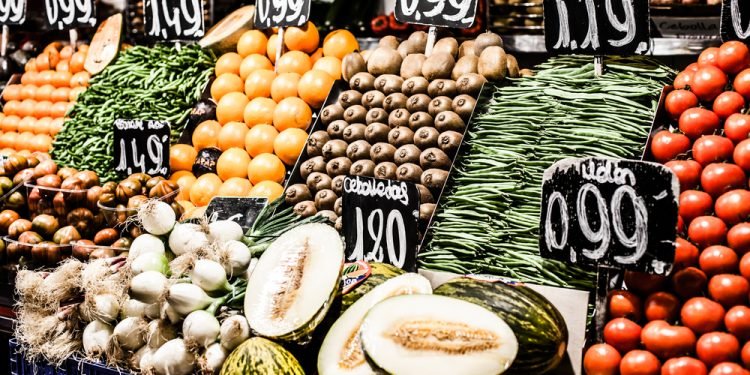Belgium (Brussels Morning Newspaper), The European Union is joining China and Russia in opposition to a plan that would make it much easier for developing countries to access nutritious, affordable food.
These strange bedfellows have found common cause in undermining the creator of that plan, the Codex Alimentarius Commission.
Codex was established in 1963 through a joint charter of the World Health Organization and the Food and Agriculture Organization — both United Nations agencies. The body is responsible for developing global food safety standards, ensuring that food can move as freely as possible across international borders. In November 2023, Codex will celebrate its 60th anniversary.
In the 60 years since its inception, Codex has been remarkably successful in lowering trade barriers for food products. As a result, developing nations now enjoy a more affordable and secure food supply.
That success is largely due to Codex’s commitment to its mandate of advancing food safety standards based on internationally recognized science. When Codex meets later in the month, members will have to choose: do they reaffirm their commitment to these principles and to Codex’s mandate for the next six decades, or do they allow politics and protectionism to supersede principle?
Codex rules cover everything from food labels and pesticide use to residue limits and hygiene practices. Independent panels of scientists advise Codex throughout its decision-making process, ensuring guidelines reflect the latest science. Codex’s procedural rules ensure that every country’s voice is heard and that no country or region can impose its own preferences on how standards are written.
The body has changed substantially since 1963. It began as a body controlled by rich, industrialized nations, with little to no representation from low- and middle-income countries.
Today, nearly all of the 193 U.N.-recognized countries participate in Codex, giving developing nations a deserved role in determining how global food standards are created.
I served as chair of Codex from 2008-2011, so I know firsthand that, like any large family, it’s hard to get every member to agree. All of Codex’s work is built around the principle of consensus. Just a few members can stop Codex’s work from advancing if they choose.
That’s why over the years, Codex members have come to respect each other’s cultural and economic differences while simultaneously recognizing that any globally applicable standard has to be based on rigorous science — and nothing else.
A Codex member who disagrees in principle with a specific proposal can formally register its opposition while allowing the standard to proceed.
Crucially, all Codex standards are voluntary. A member nation that opposes a Codex decision to permit the use of a particular pesticide, for instance, remains free to prohibit crops treated with that pesticide from entering its borders.
Members’ shared respect for Codex’s rule-making process — and the principles that guide it — is the only reason the body has been so successful over the years. We now live in a truly global food market, and economies around the world are better for it.
Unfortunately, a small group of nations is abusing Codex’s respect for consensus by blocking a science-backed proposed standard that an overwhelming majority of members, including many developing nations, support.
The dispute concerns a generic veterinary medicine called zilpaterol, which helps cattle put on muscle more quickly and efficiently.
Many developing countries have supported efforts to adopt global Codex standards for the medicine — and thus make it easier for farmers who use it to sell their meat on global markets, and for countries that import meat to have a global standard to refer to when they test imports.
But the E.U. bloc and a small group of other nations have repeatedly blocked Codex’s efforts to adopt standards for zilpaterol. The proposal has been in a sort of purgatory for over a decade — more than twice as long as it usually takes for Codex to adopt a new standard.
These countries’ opposition isn’t an issue of science. Studies from the World Health Organization and Food and Agriculture Organization have concluded that meat from cattle treated with zilpaterol is safe to eat. Even the countries blocking the standard agree that the science is sound and that the medicine is safe.
Instead, they’re blocking the standard because, they claim, many consumers in their domestic markets prefer meat from animals that didn’t receive the drug. Consumers have that right, of course; Codex standards do not have any bearing on that right. And no nation is obligated to adopt a Codex standard — again, they’re voluntary.
The problem goes beyond one drug. The E.U. has tried many times to block the adoption of pesticide and food additive standards that don’t match their own policies. None of these past attempts to undermine Codex, however, have the sweeping destructive potential of the Zilpaterol decision.
I worry that failure to adopt the proposed standard could undermine global trust in Codex by setting a precedent that its standards can be a product of political preferences rather than science alone.
That’d be particularly harmful to low-and middle-income nations, who often do not have the resources to stand up for food safety agencies of their own and thus rely on Codex standards when developing the policies that govern food within their borders. If shared faith in Codex standards suffers, so too could access to nutritious food in developing nations.
This month, Codex will gather for its annual meeting in Rome. This year’s gathering coincides with the 60th anniversary of Codex — and provides a historic opportunity for member nations to recommit themselves to Codex’s guiding principles. And it’s likely to include the important procedural vote that could determine whether the zilpaterol standard will succeed.
Any effort to choose politics over Codex’s mandate risks irreversibly damaging the public’s confidence in Codex and reversing important progress against world hunger. It’s incumbent upon Codex’s 188 members to work together to avoid that outcome.




